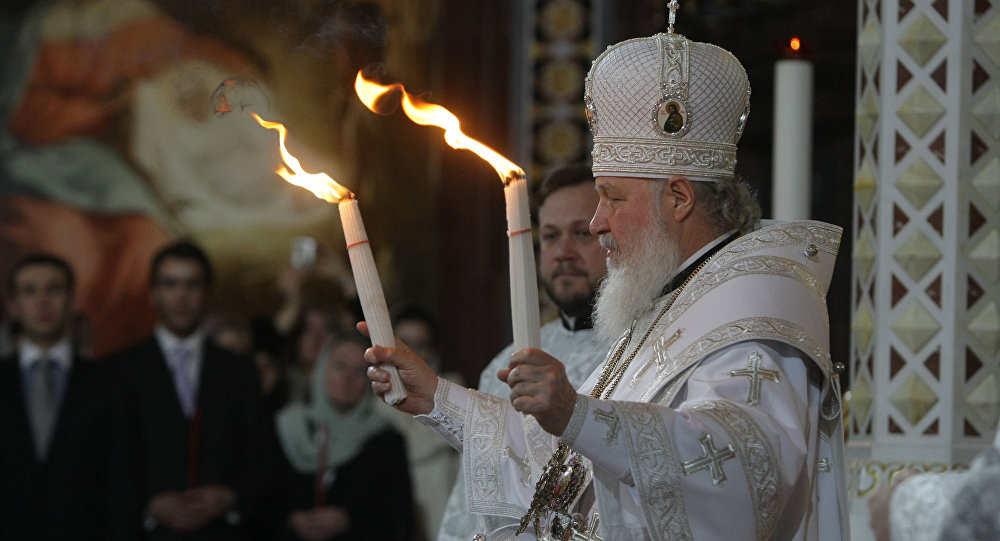Orthodox Christians from all over the world are celebrating the most important festival in their calendar this weekend amid a series of restrictions and bans on traditional observance.
Authorities in Eastern Europe and the Middle East have said congregations must not attend services.
However, in Georgia, worshippers will still be able to attend churches.
Russia’s Orthodox Church has agreed to break from its annual traditions and is urging millions of believers not to attend church. Worshippers usually attend late-night processions to receive blessings. This year Mass will only be held in the presence of priests and other clergy.
In Greece, restrictions on movement have so far been widely praised for curbing the spread of coronavirus.
This Easter authorities have banned attendance of church services, which would normally attract hundreds of thousands of worshippers.
When the Holy Fire arrives in Athens on Saturday evening it will be taken to the Jerusalem patriarchate in Athens and unusually will not be distributed to churches elsewhere.
The Church has backed the ban and thousands of police have been deployed to prevent Greeks using the holiday to visit relatives or second homes.

Easter 2020: Pope Francis Urges People Not to Yield to Fear Over Coronavirus
In Romania, people have been told they will not be allowed to leave their homes to receive the Holy Fire on Easter night or take bread splashed with holy water and wine, as is traditional. However, the Holy Light will be distributed to the homes of believers who request it.
The neighboring country, Bulgaria, has imposed a curfew on the capital Sofia to stop traffic in and out of the city to stop people heading off on holiday.
Churches in Serbia and Montenegro have told worshippers to celebrate Easter at home.
However, North Macedonia’s Orthodox Church says it will not use force to prevent people going to church.
InUkraine, officials have said riot police will be deployed if believers start gathering at churches in big numbers.
Egypt’s Coptic Orthodox Pope Tawadros II held a Good Friday service without a congregation at a monastery north-east of Cairo. The service was televised live on Coptic Orthodox TV channels and showed deacons and priests gathered with gaps between them to prevent the spread of Covid-19.
The Holy Flame was taken on Saturday, April 18, to the Church of the Holy Nativity in the Palestinian town of Bethlehem in the occupied West Bank.
The traditional Holy Fire ceremony went ahead in a near-deserted Church of the Holy Sepulchre in Jerusalem.
The church was closed last month and only a handful of Orthodox clergy, some of them wearing black masks, were allowed in for the ceremony.
A candle is traditionally lit with the Holy Fire in the crypt of the Holy Sepulchre by Greek Orthodox Patriarch Theophilos III, to symbolize the resurrection of Jesus.
Instead of the flame being passed on to thousands of pilgrims, this time the ceremony was attended by the Armenian Orthodox patriarch, four assistants and Coptic and Syrian archbishops, Israeli media report.
The church bells tolled and the flame was carried out of the church by Theophilos III and others to be taken to Ben Gurion airport near Tel Aviv and flown to 10 countries.
